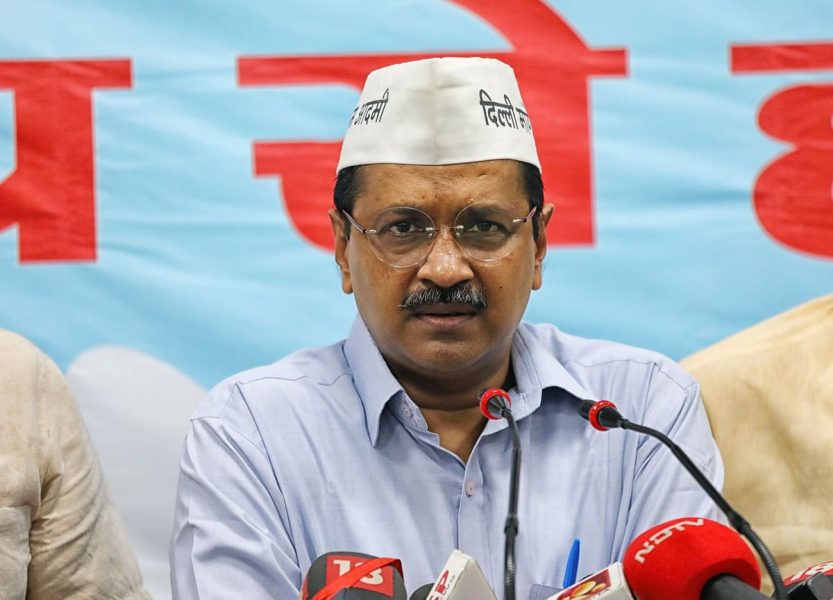
AAP gives 'in-principle support' to UCC; resistance from other parties on the rise

The Aam Aadmi Party (AAP) has expressed “in-principle support” for the Uniform Civil Code (UCC), a move that has drawn opposition from the Indian Union Muslim League (IUML) and the All India Muslim Personal Law Board (AIMPLB).
Prime Minister Narendra Modi’s recent endorsement of the UCC sparked a political debate, with various parties taking different positions on the issue. The AAP, while extending its support, emphasised the need for extensive consultations and consensus among stakeholders before implementing the UCC. This divergence of opinions reflects the challenges faced by opposition parties in forming a united front against the BJP in the upcoming elections.
UCC refers to a set of laws that are applicable to all Indian citizens, irrespective of their religion, governing personal matters such as marriage, divorce, inheritance, and adoption.
Rajnath slams opponents
Defence Minister Rajnath Singh criticised the attempts by political opponents to give a communal color to the discussion of UCC implementation. He emphasised the importance of politics that unifies society and the country, rather than dividing them.
Also read: Forget UCC for now, amend succession act: Kerala Muslim women’s forum
Congress leader Rahul Gandhi, while attacking the rising prices of essential commodities, stated that his party would not allow the BJP to divert attention from public issues by focusing on the UCC. Meanwhile, the AAP emphasised the need for consensus and extensive consultations with all stakeholders, including political and non-political entities, before implementing the UCC.
The AIMPLB strongly opposed the UCC, considering it against the spirit of the Constitution. It argued that its implementation would not only affect Muslims but also Hindus, Sikhs, Christians, Jains, Jews, Parsis, and other minority communities, given the diverse religious and cultural fabric of India. The Janata Dal (United) criticised Modi’s statement on UCC as a political stunt and questioned its relevance to the welfare of minorities. The Nationalist Congress Party (NCP) echoed this sentiment, calling for a cautious approach and emphasizing the need to avoid rushed decisions.
Mukhtar Abbas Naqvi, a BJP leader, called for the UCC to be freed from “communal crafters,” asserting that it was meant for the entire society and not for any particular community. Senior Congress leader P Chidambaram expressed concerns that a majoritarian government should not force the UCC on people, as it could further divide the population. He accused the BJP of using the UCC as a tool for polarisation and diverting attention from pressing issues such as unemployment, price rise, and hate crimes.
Watch: PM Modi triggers UCC debate; Owaisi terms it ‘Hindu Civil Code’
The IUML, a Congress ally and part of the opposition UDF in Kerala, alleged that Modi’s push for the UCC was merely an election agenda without substantial achievements during his governance. The Shiromani Akali Dal (SAD) cautioned against the adverse impact of UCC implementation on minority and tribal communities. They criticized the AAP for its support, claiming it exposed their alleged anti-minority stance. On the other hand, the Vishva Hindu Parishad (VHP) welcomed the UCC push, stating that it would help eliminate discrimination against women.
Overall, the issue of UCC has triggered diverse responses from political parties, highlighting the complexities surrounding the implementation of a uniform civil code in a multi-religious and multicultural country like India.
With agency inputs


